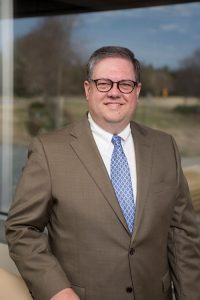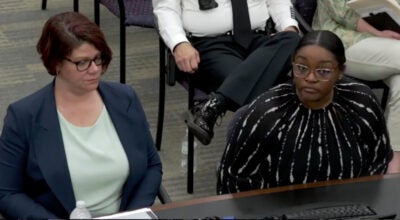DCCC president selected as Aspen Presidential Fellow
Published 12:00 am Thursday, April 18, 2019
Darrin Hartness, president of Davidson County Community College, will join community college leaders across the nation in the 2019-20 class of the Aspen Presidential Fellowship for Community College Excellence.
The fellowship is part of the Aspen Institute’s College Excellence Program.
The fellowship is a leadership program aimed at preparing the next generation of community college presidents to transform institutions to achieve higher and more equitable levels of student success, both in college and in the labor market.

Darrin Hartness serves as Davidson County Community College’s fourth president. As an Aspen Presidential Fellow, Hartness joined 40 select community college leaders across the country for this prestigious program.
“I am looking forward to this Presidential Fellowship as I spend time with and learn from colleagues from around the nation,” Hartness said. “As we share ideas and learn from thought partners and experts in the field, this cohort will become better equipped to support the community colleges and communities we serve.”
Hartness and the 39 other fellows will embark on a 10-month fellowship beginning in July. Delivered in collaboration with the Stanford Educational Leadership Initiative, the fellows will work with mentors — current and former community college presidents — who have achieved exceptional outcomes for students throughout their careers.
Fellows will also learn from national experts about ways to harness data to assess student success outcomes, strategies for internal change leadership and how to create strong external partnerships with K-12 schools, four-year colleges and employers.
The Aspen Presidential Fellowship is a response to a growing need for a new generation of leaders who are well-equipped to meet the challenges of the future. Nationally, nearly 80 percent of community college presidents plan to retire in the next decade. The pathway to replace them has traditionally excluded women and people of color.
The incoming class of Aspen Presidential Fellows is 65% women and 43% people of color, and their institutions vary widely in size and location.
“Evidence shows that substantial improvements in student success are achieved only when presidents have the commitment and skill needed to lead change within their institutions and through partnerships in the community,” said Josh Wyner, executive director of the Aspen Institute’s College Excellence Program. “These fellows have been chosen because they embody that commitment and, we believe, will build their skills even further to become transformational presidents.”
Hartness was selected through a process that considered his abilities to take strategic risks, lead strong teams and cultivate partnerships, and focus on results-oriented improvements in student success and access.
For a biography and photo of Hartness and a list of the 2019-20 class of Aspen Presidential Fellows, visit http://as.pn/1ky.
The Aspen Presidential Fellowship for Community College Excellence is supported by the Charles and Lynn Schusterman Family Foundation, College Futures Foundation, Greater Texas Foundation, JP Morgan Chase Foundation, Joyce Foundation, Kresge Foundation and Andrew W. Mellon Foundation.
“I am grateful for this opportunity to grow professionally through one of the most respected institutes in America,” Hartness said.



